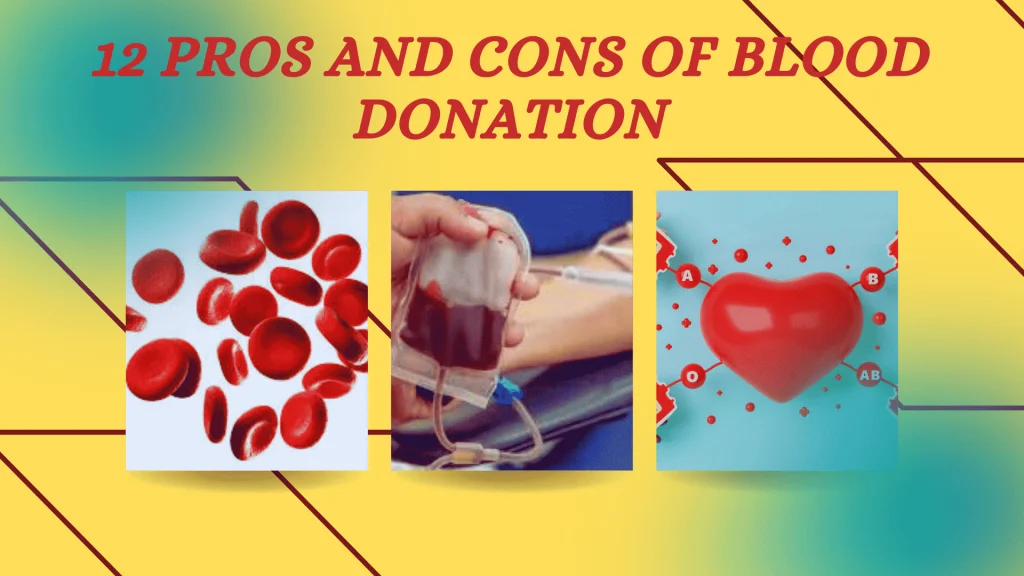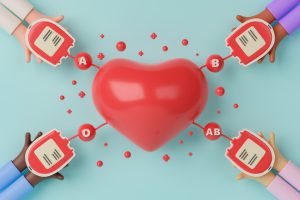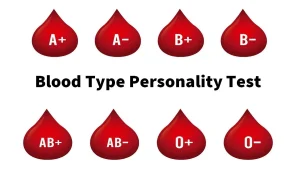Welcome to (International Stories). In this story, we will discuss 12 Pros and cons of blood donation. I hope you will like this article.
 http://internationalstories.com/
http://internationalstories.com/
12 Pros and cons of blood donation
Blood donation is a vital medical procedure that involves voluntarily giving a portion of your blood to be used for various medical treatments and emergencies. Here are some pros and cons of blood donation:
Pros of Blood Donation:
Saves Lives: One of the most significant advantages of blood donation is that it can save lives. Blood transfusions are essential for patients undergoing surgeries, cancer treatment, trauma victims, and those with certain medical conditions like anemia or blood disorders.
Helps Patients in Need: Donating blood is a selfless act that directly helps individuals in need of blood or blood products, such as platelets and plasma. Your donation can make a significant difference in someone’s life.
Health Benefits: Giving blood might be beneficial to the donor’s health. It can stimulate the production of new blood cells, reduce the risk of certain diseases, and help maintain healthy iron levels in the body.
Screening and Testing: Blood donation centers rigorously screen and test donated blood for various infectious diseases, including HIV, hepatitis, and syphilis. This ensures that the blood supply remains safe for recipients.
Community Involvement: Blood donation provides an opportunity for individuals to contribute to their communities and make a positive impact on the well-being of others.
Regular Health Check: Donors often receive a mini-physical examination before donating, including blood pressure, pulse, and hemoglobin checks, which can help identify potential health issues.
Cons of Blood Donation:
Discomfort and Pain: Some people may experience mild discomfort or pain during the blood donation process, primarily when the needle is inserted into the vein. However, this discomfort is usually temporary.
Dizziness and Weakness: After donating blood, some individuals may feel lightheaded, dizzy, or weak. This can be alleviated by resting and hydrating after donation.
Time Commitment: Blood donation typically takes about 30 minutes to an hour, which can be inconvenient for those with busy schedules.
Temporary Ineligibility: Certain individuals may be temporarily ineligible to donate blood due to factors like recent travel to certain regions, illness, or low hemoglobin levels. This can limit the availability of donors.
Bruising or Infection: In rare cases, there may be complications such as bruising or infection at the needle insertion site. However, these complications are generally minor and uncommon.
Fear or Anxiety: Some people may experience fear or anxiety related to the needle or the idea of donating blood, which can deter them from participating.
Overall, the benefits of blood donation, including saving lives and potential health benefits, often outweigh the temporary discomfort or inconveniences associated with the process. Many people find the act of donating blood to be a rewarding and fulfilling experience.
If you’re considering donating blood, it’s essential to consult with a healthcare professional and a local blood donation center to address any concerns and ensure you meet the eligibility criteria.
Giving blood is generally a safe and altruistic act that can save lives. However, like any medical procedure, there can be some potential risks and side effects associated with blood donation. It’s essential to understand these risks, but it’s also important to note that they are relatively rare, and blood donation is a well-regulated and essential part of healthcare.
Some potential bad effects or risks associated with giving blood include:
Fainting: Some individuals may experience fainting or lightheadedness during or after blood donation. This is more common in first-time donors or individuals who are particularly sensitive to the process.
Bruising or Pain: There may be some pain, tenderness, or bruising at the site of the needle insertion. This is usually minor and temporary.
Infection: While stringent infection control measures are in place, there is always a small risk of infection at the needle insertion site. The risk is extremely low, but it’s not zero.
Nausea and Dizziness: Some donors may experience nausea, dizziness, or lightheadedness after donating blood. This is typically short-lived and can often be prevented by adequate hydration and resting after donation.
Hematoma: In rare cases, a hematoma (a localized collection of blood outside of blood vessels) can occur at the needle insertion site.
Allergic Reactions: Although exceedingly rare, some people may experience an allergic reaction to the materials used in the donation process, such as anticoagulants or the blood bag itself.
Vasovagal Syncope: This is a condition where a person’s heart rate and blood pressure drop significantly, leading to fainting. It can occur in response to the sight of blood, needles, or even the process of donation itself. It’s more common in individuals who are anxious about the procedure.
Iron Deficiency: Frequent blood donation can lead to a temporary reduction in iron levels in the donor’s body. However, this can usually be managed through dietary changes or iron supplements.
It’s essential to remember that blood banks and donation centers take numerous precautions to minimize these risks. Donors are typically screened for eligibility, and the equipment used is sterile and disposable. Moreover, donors are closely monitored during and after donation to ensure their safety.
The benefits of blood donation far outweigh the risks, as donated blood is crucial for medical treatments, surgeries, and emergency care. If you are considering donating blood, it’s advisable to consult with a healthcare professional or the donation center to address any concerns or questions you may have. Additionally, if you experience any adverse effects after donating blood, you should contact the donation center or seek medical attention as needed.
Many questions regarding blood donation and non-donation
Question:
The biggest disadvantage of donating blood What is it?
Answer:
There is no harm in giving blood, of course.
Regular blood donors are a huge benefit. The chances of a person having a heart attack and cancer 95% less than the rest of the people. Research by the American Medical Association
Question:
After donating blood to someone In how many days does blood become?
Answer:
Within three days of donating blood. The reduction is completed in 56 days. Fresh blood by becoming whole blood cells. It starts running in the veins …
Question:
Old blood is more powerful or Newcomer?
Answer:
The new blood is older than the old More floor and stronger.
Question:
What are the benefits of donating blood?
Answer:
The biggest benefit of donating blood. Participate in a charity event that. Reward for you from generation to generation till the Day of Judgment. Is the cause of Another major benefit is iron in the blood. Quantitative balance and the greatest. Benefit to live a healthy and fresh life. The skin of a regular blood donor. Longer than others. Stays young and healthy. One of its benefits is free blood There is also screening .
Question:
How frequently may blood be donated each year? Is?
Answer:
A healthy person whose age. Be between 17 and 50 and weigh 50 kg .At least in more years. Can easily donate blood twice. Donation once three months after blood donation Can give
Question:
What percentage in Pakistan and Kashmir? Do people donate blood?
Answer:
Only one in Pakistan and Kashmir. Two percent of people donate blood regularly. People also give in emergencies.
Question:
How long is the life of blood?
Answer:
The life of blood is 120 days. Our blood cells in 120 days. When they die, they pass out of the urinary tract. Are and are re-created.
Question:
Then why are we afraid to donate blood? Are there
Answer:
We breathe in such a society. Where it is spread that. Giving blood weakens a person and. Blood does not form again . So our patients. There was a lack of blood on the sobbing beds. Give up because of .
Question:
When was International Blood Donation Day celebrated? Is?
Answer:
Blood in non-Muslim countries on June 14 in Muslim countries Giving is considered fear.
CONCLUSION:
The advantages of blood, both in terms of its physiological functions and its importance in medical treatments, are significant and encompass a wide range of benefits. Here’s a brief conclusion of the advantages of blood:
Transportation of Oxygen and Nutrients: Blood carries oxygen from the lungs to cells throughout the body, ensuring the proper functioning of tissues and organs. It also transports vital nutrients, hormones, and other essential substances to cells.
Removal of Waste Products: Blood helps remove metabolic waste products, such as carbon dioxide and urea, from the body. This function is critical for maintaining a healthy internal environment.
Immune System Support: Blood contains white blood cells that play a crucial role in defending the body against infections and foreign invaders. These cells are essential for maintaining overall health and well-being.
Clotting and Wound Healing: Blood contains platelets, which are responsible for clotting and preventing excessive bleeding when injuries occur. This protective mechanism is vital for preventing life-threatening hemorrhages.
Regulation of Body Temperature: Blood helps regulate body temperature by distributing heat throughout the body, ensuring that internal temperature remains within a narrow, functional range.
Maintaining pH Balance: Blood plays a role in maintaining the body’s pH balance, which is essential for proper enzyme function and overall cellular activity.
Medical Treatments: Blood transfusions are a lifesaving medical procedure used to replace lost blood due to trauma, surgery, or medical conditions like anemia. Blood products, such as plasma and platelets, are also crucial for treating various medical conditions.
Research and Diagnostic Tools: Blood tests provide valuable information about a person’s health, including markers for diseases, blood cell counts, and more. Blood samples are essential in medical research and diagnostics.
Potential for Donation: Blood donation is a noble act that saves lives. Donated blood is used in various medical situations, including emergencies, surgeries, and treatments for chronic illnesses.
In conclusion, blood is a remarkable substance with numerous advantages that are indispensable for human life and health. Its multifaceted functions in oxygen transport, waste removal, immune defense, and maintaining overall physiological balance make it an irreplaceable component of the human body.
Additionally, its crucial role in medical treatments and research underscores its significance in advancing healthcare and saving lives. Blood donation remains a vital way for individuals to contribute to the well-being of others and the medical community.
FAQ:
What is the definition of blood?
Blood is a specialized bodily fluid that circulates through the circulatory system of humans and many other animals. It is a vital component of the body’s overall physiology and serves several critical functions, including:
Transportation: Blood carries oxygen and nutrients to cells and tissues throughout the body, ensuring their proper function. It also transports waste products, such as carbon dioxide, away from cells to be eliminated from the body.
Regulation: Blood helps regulate the body’s pH levels, temperature, and electrolyte balance. It plays a crucial role in maintaining homeostasis, the body’s stable internal environment.
Immunity: Blood contains white blood cells (leukocytes) and antibodies that help defend the body against infections and foreign invaders, such as bacteria, viruses, and other pathogens.
Clotting: Blood contains platelets and clotting factors that help prevent excessive bleeding when a blood vessel is damaged. This mechanism is essential for wound healing and preventing excessive blood loss.
Hormone Transport: Hormones, produced by various glands in the body, are carried through the bloodstream to their target organs and tissues, where they regulate various physiological processes.
Blood is composed of several different components, including red blood cells (erythrocytes), white blood cells (leukocytes), platelets (thrombocytes), and plasma. The proportion of each of these components may vary slightly among individuals and can be affected by factors like age, sex, and overall health. The color of blood is typically red when oxygenated and darker red when deoxygenated.
Overall, blood is a fundamental part of the circulatory system and plays a vital role in maintaining the health and function of the body’s organs and tissues.
What is blood made of?
Blood is a complex fluid tissue that plays a vital role in the human body. It is made up mostly of four elements:
Red Blood Cells (Erythrocytes):
Red blood cells are the most abundant cells in the blood and are responsible for carrying oxygen from the lungs to the body’s tissues and returning carbon dioxide to the lungs for exhalation. They contain haemoglobin, a protein that gives blood its red colour.
White Blood Cells (Leukocytes):
White blood cells are a crucial part of the immune system and help the body fight infections and foreign invaders. White blood cells come in a variety of varieties, each having a distinct purpose.
Platelets (Thrombocytes):
Platelets are small cell fragments that play a critical role in blood clotting and wound healing. When blood vessels are damaged, platelets help form clots to stop bleeding.
Plasma:
Plasma is the liquid component of blood and makes up about 55% of the total blood volume. It is a yellowish fluid that contains water, electrolytes (such as sodium and potassium), hormones, waste products, and various proteins, including clotting factors, antibodies, and albumin.
In addition to these four main components, blood also contains various other substances, including nutrients (such as glucose and amino acids), waste products (like urea), gases (oxygen and carbon dioxide), and other molecules necessary for maintaining bodily functions.
The composition of blood is carefully regulated to ensure that it can perform its essential functions in maintaining homeostasis, transporting nutrients and oxygen, removing waste products, and defending the body against infections and injuries.
What are the 3 types of blood?
There are actually four main blood types, determined by the presence or absence of specific antigens on the surface of red blood cells. These blood types are commonly referred to as the ABO blood group system, and they are:
Type A: People with Type A blood have anti-B antibodies in their plasma and A antigens on the surface of their red blood cells.
Type B: People with Type B blood have B antigens on the surface of their red blood cells and anti-A antibodies in their plasma.
Type AB: Individuals with Type AB blood have both A and B antigens on the surface of their red blood cells but no anti-A or anti-B antibodies in their plasma. Type AB is often referred to as the “universal recipient” because they can receive blood from donors of any ABO type without a severe immune reaction.
Type O: People with Type O blood have neither A nor B antigens on the surface of their red blood cells, but they have both anti-A and anti-B antibodies in their plasma. Type O is often called the “universal donor” because their blood can be given to individuals of any ABO blood type.
In addition to the ABO blood group system, there is another important antigen called the Rh factor, which can be either present (+) or absent (-) on the surface of red blood cells. When combined with the ABO blood type, this creates eight possible blood types (A+, A-, B+, B-, AB+, AB-, O+, O-), though ABO compatibility is generally more critical in blood transfusions.
Understanding a person’s blood type is crucial in medical situations such as blood transfusions and organ transplants to ensure compatibility and prevent adverse reactions.
What is blood important for?
Blood is a vital component of the human body, serving several crucial functions that are essential for maintaining overall health and homeostasis. Here are some of the key roles that blood plays in the body:
Transport of Oxygen: Blood carries oxygen from the lungs to all the cells in the body. Hemoglobin, a protein in red blood cells, binds to oxygen in the lungs and releases it to tissues and organs.
Removal of Carbon Dioxide: Blood also transports carbon dioxide, a waste product of metabolism, from the cells back to the lungs, where it can be exhaled from the body.
Nutrient Delivery: Blood delivers essential nutrients, such as glucose, amino acids, fatty acids, and vitamins, to cells throughout the body to support their metabolic processes.
Removal of Waste Products: Blood carries metabolic waste products, like urea and lactic acid, away from cells to be filtered and excreted by the kidneys and other organs.
Hormone Transport: Hormones, which regulate various physiological processes, are transported in the bloodstream to target organs and tissues.
Immune System Support: Blood contains white blood cells that play a critical role in the body’s immune response by detecting and combating infections and foreign invaders.
Temperature Regulation: Blood helps regulate body temperature by distributing heat from active areas (such as muscles) to cooler areas and by aiding in the cooling process through the skin’s blood vessels.
Blood Clotting: Platelets in the blood are responsible for clotting, which prevents excessive bleeding when blood vessels are damaged. The clotting process helps in wound healing.
pH Balance: Blood helps maintain the body’s acid-base balance (pH) by acting as a buffer, helping to stabilize the pH levels in various bodily fluids.
Volume and Pressure Regulation: Blood volume and pressure are closely regulated to ensure adequate perfusion of organs and tissues. The heart and blood vessels work together to maintain blood pressure within a certain range.
Transport of Waste Products to Excretion Organs: Blood carries waste products from various tissues to organs like the kidneys and liver, where they can be processed and eventually excreted from the body.
Defense Against Infections: Blood contains antibodies and other immune system components that help protect the body from infections and diseases.
In summary, blood is essential for oxygen transport, nutrient delivery, waste removal, immune defense, temperature regulation, clotting, and many other vital functions that are necessary for the body’s survival and proper functioning. Any significant disruption in these functions can have serious consequences for an individual’s health.
Is donating blood good for body?
Yes, donating blood can be good for your body, and it also has important benefits for others in need. Here are some of the potential benefits of donating blood:
Helps Save Lives: The primary benefit of donating blood is that it can save lives. Blood transfusions are crucial in treating various medical conditions, including trauma, surgery, cancer, and certain medical disorders. Your donated blood can provide someone in need with the vital components they require for survival.
Reduces Iron Levels: Regular blood donation can help reduce the level of iron in your body. This is particularly beneficial for individuals with hemochromatosis, a condition in which the body absorbs too much iron, which can be harmful. Lowering iron levels through donation can reduce the risk of iron-related health problems.
Cardiovascular Health: Some studies suggest that regular blood donation may have potential cardiovascular benefits. Donating blood may reduce the risk of heart disease by lowering iron stores in the body. High levels of iron have been associated with an increased risk of heart disease.
Free Health Check: Before donating blood, you typically undergo a health screening, which includes checking your blood pressure, pulse, temperature, and hemoglobin levels. This can provide you with valuable information about your health and can serve as a regular health checkup.
Blood Cell Renewal: After donating blood, your body works to replace the lost blood, stimulating the production of new blood cells. This can help maintain the overall health of your blood and immune system.
Psychological Benefits: Donating blood can give you a sense of satisfaction and purpose, knowing that you are contributing to the well-being of others in your community. This can have positive psychological effects, such as reducing stress and boosting your mood.
However, it’s important to note that while blood donation has many potential benefits, it may not be suitable for everyone. Some individuals may have medical conditions or other factors that prevent them from donating blood. It’s essential to consult with a healthcare professional or a blood donation center to determine if you are eligible to donate blood and how often it is safe for you to do so.
Additionally, after donating blood, it’s essential to stay hydrated and follow any post-donation guidelines provided by the blood donation center to ensure a smooth recovery.
What prevents you from donating blood?
Donating blood is something that can only be done by individuals who meet certain health criteria and are physically present at a blood donation center or event. These criteria typically include factors like age, weight, overall health, and the absence of certain medical conditions or medications that might disqualify someone from donating blood.
It’s important for individuals to consult with their local blood donation organization or medical professionals to determine if they are eligible to donate blood.
What to expect after donating blood?
After donating blood, it’s common to experience some immediate and short-term effects, as well as some long-term considerations. Here’s what you can generally expect:
Immediate effects:
Feeling lightheaded: Some people may feel lightheaded or dizzy immediately after donating blood. This is usually a temporary sensation and can be alleviated by resting for a few minutes and drinking fluids.
Bruising or pain: It’s normal to have some bruising or tenderness at the needle insertion site. Within a few days, this normally goes away.
Nausea or fainting: Occasionally, people may experience nausea or fainting. This is more common if you didn’t eat a light meal before donating. It’s essential to inform the healthcare staff if you start feeling unwell.
Bandage: A bandage will be applied to the needle site to stop any bleeding. Keep this on for a few hours and avoid heavy lifting or strenuous activity that could cause the wound to reopen.
Short-term effects:
Fatigue: It’s common to feel a bit more tired than usual after donating blood. Rest and drink plenty of water to aid in your body’s healing.
Thirst: You may feel thirsty after donating blood. Drink plenty of fluids, especially water or juice, to help replenish your fluids.
Minor physical limitations: It’s generally advisable to avoid heavy exercise and strenuous activities for the rest of the day after donating blood.
Long-term considerations:
Diet: It’s essential to have a well-balanced meal before donating blood and to continue eating nutritious foods afterward to help your body replace lost nutrients.
Hydration: Stay well-hydrated in the days following your donation to help your body replenish the lost fluid volume.
Iron levels: Regular blood donation can lead to a gradual decrease in iron levels in the body, which could potentially lead to iron-deficiency anemia in some cases. If you’re a frequent blood donor, it’s a good idea to monitor your iron levels and consider taking iron supplements if advised by a healthcare professional.
Donation frequency: Follow the guidelines provided by the blood donation center regarding the frequency of donations. In most cases, whole blood can be donated every 8 weeks.
Remember that these effects can vary from person to person. If you experience any severe or prolonged symptoms, such as significant bleeding, severe dizziness, or chest pain, seek medical attention immediately. Always follow the guidance provided by the healthcare professionals at the blood donation center and consult your healthcare provider if you have any concerns about donating blood.
This article is intended for charity. It is written to share further and this
Join in the good.



Thanks for sharing. I read many of your blog posts, cool, your blog is very good.
This is really interesting, You’re a very skilled blogger. I’ve joined your feed and look forward to seeking more of your magnificent post. Also, I’ve shared your site in my social networks!
Thanks for sharing. I read many of your blog posts, cool, your blog is very good.
I don’t think the title of your article matches the content lol. Just kidding, mainly because I had some doubts after reading the article.
I don’t think the title of your article matches the content lol. Just kidding, mainly because I had some doubts after reading the article.